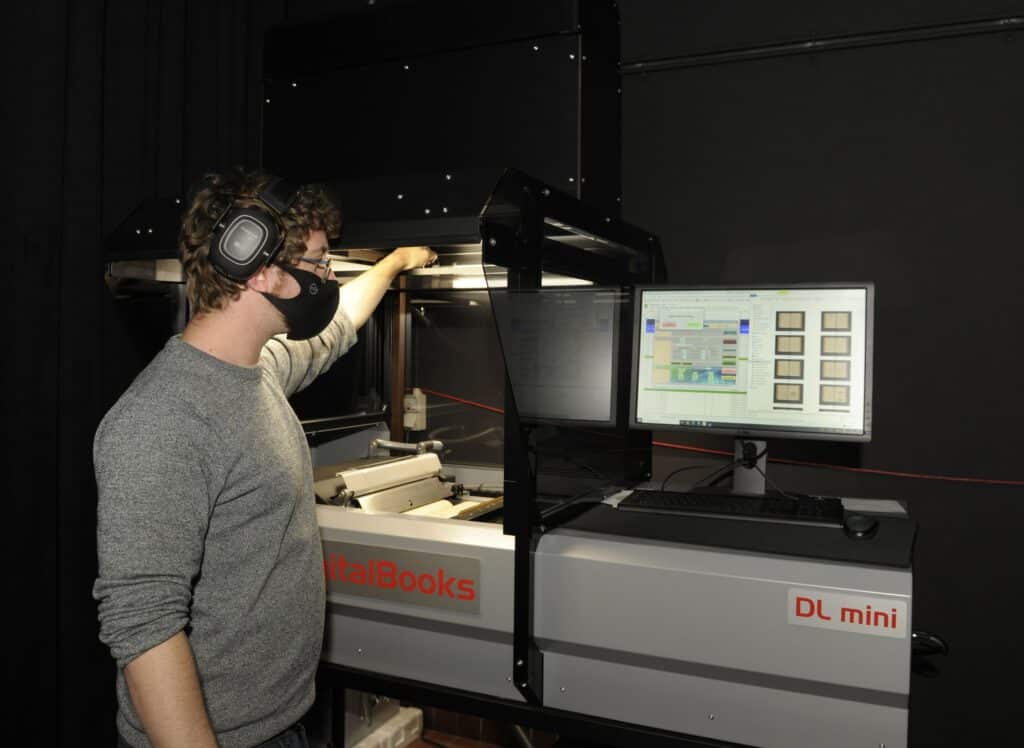With the purchase of three fully automated book scanners, KBR will be able to expand its online offer by some 15,000 pages per day, or 3,000,000 pages per year. These ‘robots’ will be used for Belgian books and periodicals from the 19th and 20th centuries. With these scanners, the collections can be digitised much faster, and therefore also made accessible faster.
A changing world
With the evolution of technology, the needs of our users are also evolving. Users need remote access to the collections and researchers in particular increasingly need large amounts of data (‘Collections as Data’).
Invaluable sources for research
KBR’s extensive collection of 19th and 20th century Belgian books and periodicals is in great demand by researchers. Thanks to a partial automation of the scanning processes, the pace of work can be significantly increased.
Currently, the robots are being tested as part of the ARTPRESSE project, which studies Belgian art as seen through the lens of mass media magazines. Tens of thousands of pages have already been scanned and added to www.belgicaperiodicals.be, KBR’s platform for digitised periodicals.
15,000 pages per day, 3,000,000 per year
How do these robots impact on KBR’s digitisation policy? By partially automating the digitisation chain, we can increase the volumes by some 15,000 pages per day for the collections of books and magazines. This will allow our heritage specialists to focus on the most vulnerable and valuable documents and objects: these still have to be digitised by hand. This is therefore a new – crucial – step in the development of KBR’s digitisation activities.
Special attention to collection care
Collection care is always given the highest priority at KBR. As with manual scanning, the highest standards are observed when scanning with these fully automated scanners. Only documents that meet strict conditions (the state of the document, its format, etc.) will be scanned this way.
Humans will, of course, continue to play a central role in the digitisation process, for example in checking the condition of the documents before scanning or in checking and supervising the scanning itself.

